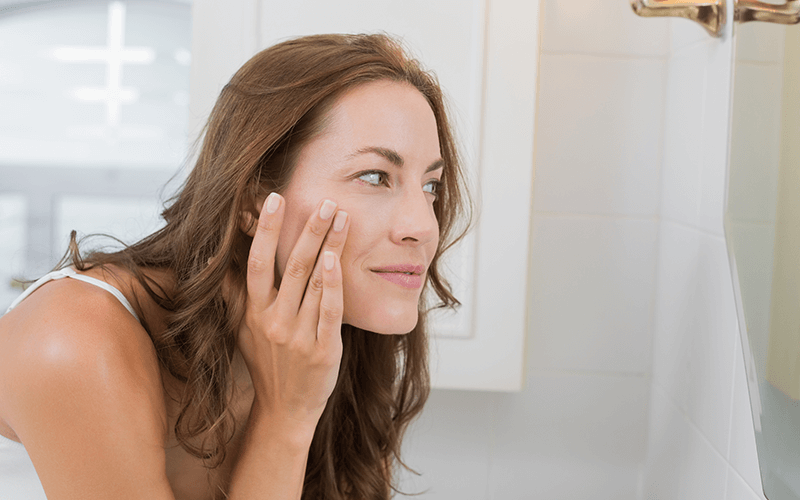There are all kinds of acne masks on the market today — mud masks, dead sea masks, sheet masks, clay masks, green masks, mint julep masks, charcoal masks, and even a new at-home light therapy mask.
Masks are left on the skin for a longer period of time than facial cleansers before being washed off, which gives the active ingredients more time to penetrate and treat the skin.
But do any of these non-prescription masks really work?
Types of Acne
Acne isn’t just a cosmetic problem; it’s a dermatological condition caused by inflammation in pores that have been clogged with dead skin cells, oil or bacteria. When a pore becomes clogged, normal skin bacteria multiply, causing your immune system to react with redness and swelling, or what we call a “pimple.”
Severe or recurrent cystic acne happens when inflammation spreads deep into the skin and creates a tender red bump that is often filled with pus. These cystic acne bumps won’t respond to over-the-counter treatments and can even lead to scarring.
In some cases, a mask can help treat mild to moderate types of acne by reducing inflammation and exfoliating the skin to remove the dead skin cells, oil and other impurities that can clog pores and cause bacteria to multiply.
Which Acne Mask Is Right for You?
Many over-the-counter masks have acne-fighting properties that can open blocked pores and absorb oil while deep cleaning and hydrating the skin. It is important to use a good cleanser or face wash before applying any mask to improve the overall effectiveness of the treatment.
So, what is the difference between these masks? Let’s take a look at some of the most popular types and how they combat acne:
Clay Masks
An acne mask with natural ingredients like calcium bentonite clay — a clay comprised of minerals and formed from natural volcanic ash — can deep clean your pores while eliminating toxins from the skin, absorbing excess oil and shrinking pores. Many over-the-counter products contain these natural ingredients. You can also create your own mask by mixing bentonite clay powder (sold at most health food stores) with water or apple cider vinegar.
Mud Masks
Mud masks use mud to absorb oil and other impurities that can clog pores and cause acne. Some mud masks use other minerals with cleansing properties and can also hydrate your skin and tighten pores.
Light Therapy Masks
These relatively new over-the-counter treatments use light to kill the bacteria that cause breakouts. Dermatologists have used light therapy to treat acne for some time, and these at-home treatments — though not as powerful — follow the same principles. Red and blue light treat pimples by decreasing redness and swelling and killing the bacteria that live on the skin. These masks do not use UV light, so there are no known risks of skin damage from using them, and people with sensitive skin might find them less irritating than other medicated products.
Medicated Masks
These masks are more powerful than natural products and contain active ingredients like benzoyl peroxide, sulfur, and salicylic acid to treat acne. The FDA regulates the amount of active ingredients allowed in non-prescription products, but you should still typically limit use to once or twice a week.
“Some masks contain active ingredients that can dry the skin and should be used sparingly,” says Dr. Thomas. “Before adding an acne mask to your daily skin routine, always talk to your dermatologist about which products are best for your skin and how often you should use them.”
Masks and Cystic Acne
Recurrent, cystic acne won’t respond to an over-the-counter mask or other spot treatments. In fact, these products could actually worsen acne. If you have severe or cystic acne, a board-certified dermatologist can recommend an effective treatment plan.
“The right mask can help to remove excess oil and dead skin cells and can also make your skin feel good, making it a great addition to your skincare routine. But masks aren’t miracle treatments,” says Dr. Thomas. “Look at the ingredients and don’t overuse. The wrong mask — or one used too often — can dry out your skin and even make acne worse.”
Remember: Before applying any new product to your face, always test it on a small section of skin to ensure it won’t irritate your skin.
Looking to Visit a Dermatologist?
We have multiple locations throughout the country, so fill out our simple online form to get in touch with us. One of our local team members will reach out to you shortly to answer your questions or schedule an appointment for you to visit us soon.
Find a location near me
or

